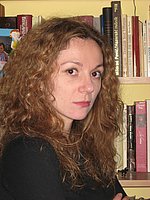
- Zrinka Božić Blanuša (Universität Zagreb)
THE POLITICS OF DECONSTRUCTION, OR THE NEW FIGURE OF EUROPE
Something unique is afoot in Europe, in what is still called Europe even if we no longer know very well what or who goes by this name. Indeed, to what concept, to what real individual, to what singular entity should this name be assigned today? Who will draw up its borders? These questions have been raised by Jacques Derrida in his famous essay L’autre cap at a moment of the promise of something new. Twenty years later the estrangement of European populations from the institutional structure of this new political entity is probably greater than at any time since its inception. In order to determine what the notion of Europe has signified and can come to signify, Rodolphe Gasché in his study Europe, or the Infinite Task (2009) discusses the philosophical conceptualization of Europe through readings of Husserl, Heidegger, Patočka, and Derrida. What seems implicit in this project is the hope that a vigorous philosophical analysis of the concept may contribute to a better understanding of the present crisis and thereby open up possibilities for dealing with it in a more productive way. In his suggestive discussion of the legend of Europa - daughter of the Phoenician king Agenor, who was abducted by Zeus disguised as a white bull - Gasché identifies what will turn out to be the distinguishing trait of Europe, at least according to the aforementioned thinkers: its originary heterogeneity. Therefore, this “new figure of Europe”, a Europe that can understand itself as having origin outside itself, as having a culture that is not identical to itself is actually present from the very beginning. But this other conception of Europe (as a figure of conversion and passage into otherness) does not entail reversibility of self and other. Since reversibility is just a way of securing sameness, Gasché’s figure of Europe (as passing, transition, or translation) undoes both the specularity and the symmetrical imbrication of self and other. This is why there is no primary identity to be overcome, nor a new one to be established. In Gasché’s view, Europe is actually another term for deconstruction.
The purpose of this paper is to explore the possibilities of this unconditional openness to otherness in the “coming (literary) community” beyond the exhausted binaries: nationalism/ cosmopolitism, European/ non-European, Eurocentrism/ anti-Eurocentrism etc.

Universität Wien
Spitalgasse 2, Hof 3
1090 Wien
T: +43-1-4277-428 01 / +43-1-4277-428 91
F: +43-1-4277-9 428




